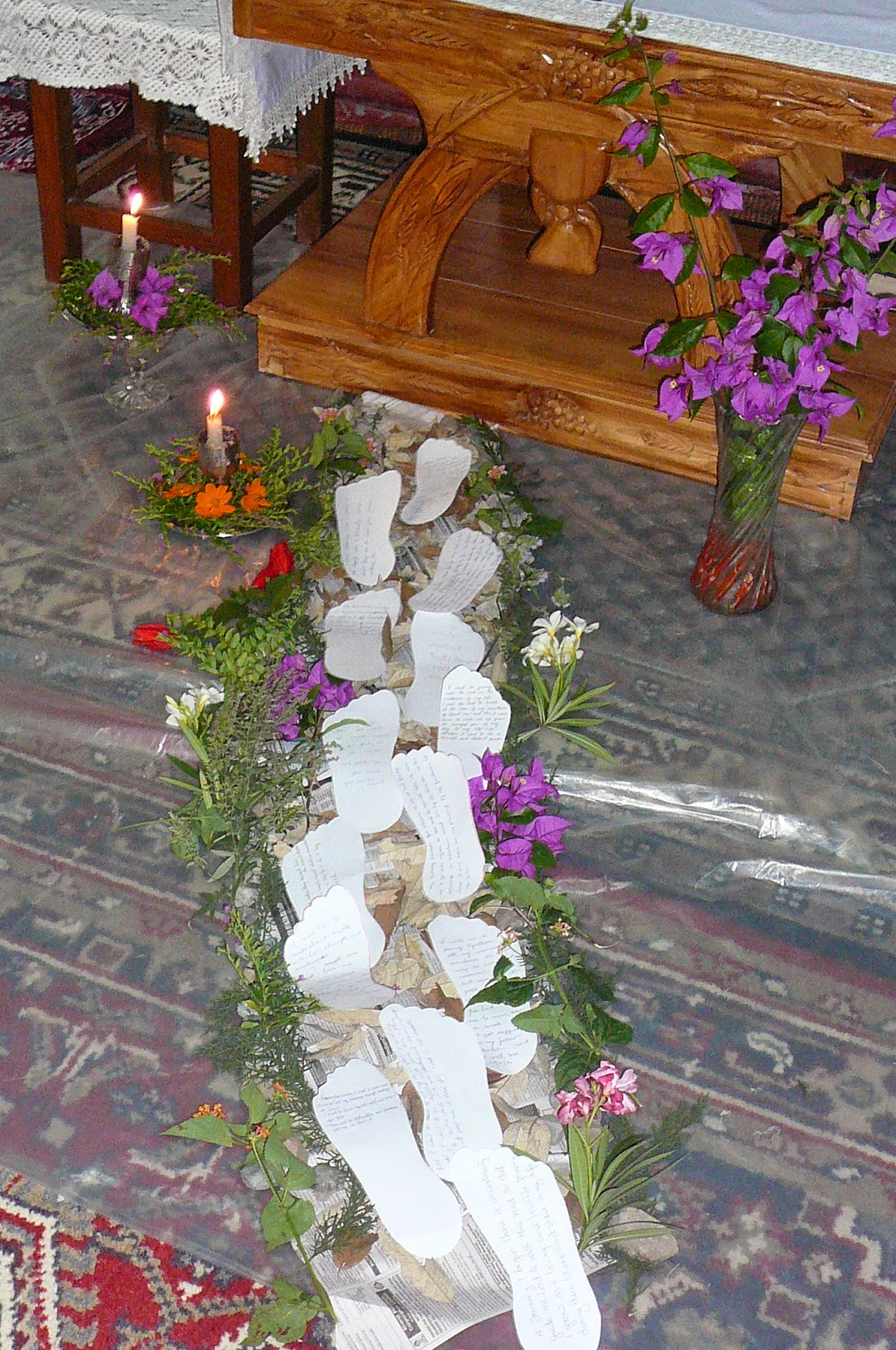The half-way mark through the 27th Sumedha Sadhana
was celebrated with an afternoon picnic to the River Bola, near Jeolikote, on 25th October.
The river currently does not have much water. So, the participants
could wade through the water, jump over the rocks and prepare tea on the dry river bed famous
for its dark sand.
The 27th Sumedha Sadhana commenced on September 25.
The first two weeks were facilitated by Jose Parappully, the Programme Director.
Parappully helped participants to look at the current
realities on the psychospiritual journey, discern what God might be telling
them through all that is happening and make choices as response to those
invitations.
He traced the rise and fall of dominant cultural paradigms,
especially the Dualistic-Mechanistic and the Holistic-Ecological and presented
the impact of these paradigms on spirituality. He presented 17 characteristics
of a “Mature Spirituality for Today” and helped participants to assess
themselves on these characteristics and redesign their priorities.
He also helped them trace their developmental experiences
through infancy to adolescence. He will be addressing Midlife dynamics later in
the programme.
The films “Siddhartha,” and “Chocalat” supplemented class
explorations.
The third week focused on “Personality and Spirituality.” Ajoy
Fernandes, a counselling psychologist an currently Vice Provincial of the
Mumbai Don Bosco Society, helped participants discover their personality types through
the MBTI, and explored the implications of each personality type for
spirituality.
Fernandes presented the Jungian concepts of Persona and Shadow, Animus
and Anima and their impact on personality and spirituality. He explored these
concepts using structured exercises and the films “Spider Man” and “EarthSea.” The entire module was integrated through creation of Mandalas.
The theme for last week was “Sexuality, Celibacy and
Intimacy.” This module was facilitated by Joe Mannath, currently Secretary of
the Conference of Religious of India. Topics explored include Stages of Psychosexual
Development, Celibate Maturity, Sexual Attraction in Ministry, integration of
Sexual Feelings in Celibate Life, Helps to Happy Celibate Life, and Celibate
Friendship.
Class explorations were supplemented by films such as “Love Comes
softly,” “Dead Man Walking,” and “Joshua” as well as Video Meditations.
“Somatic Meditations” – consisting of Music, Songs, Yoga, Dance,
Sacred Scripture, Centering Prayer and other forms of Meditations -- to begin
the day are regular part of the Sumedha Sadhana. These are facilitated by Jose
Parappully.
The day concludes with creative Liturgies that integrate the day's experiences through Scripture, Songs and the Eucharist.
Participants whose birthdays fall during the period of the Sadhana are felicitated with some level of festivities.
The 27th Sumedha Sadhana, the last for the year
2014, concludes on November 30.











.jpg)






